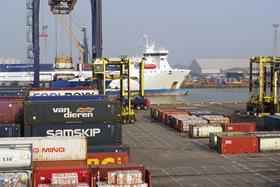
Disruption across channel services at Calais has led to a huge rise in hauliers diverting routes to ports across the east of England.
In addition, hauliers have warned that freight prices could rise “significantly” unless the Calais issues are resolved, as a fall in the number of drivers using this route may force freight firms to impose a surcharge.
During July, P&O Ferries recorded a 172 per cent increase of activity on its Teesport to Zeebrugge route, and an 84 per cent year-on-year rise in users across its Hull to Zeebrugge services. Its Tilbury to Zeebrugge route saw a 74 per cent increase.
“Importers and exporters who have previously crossed to the continent via the Channel tunnel are starting to look at longer routes from Teesport, Hull and Tilbury as a more reliable alternative,” said P&O Ferries commercial director, Janette Bell.
“Exporters know the value and time sensitive nature of their deliveries, whether they are perishable goods or manufacturing components. It is significant that they are now becoming increasingly aware of the alternative North Sea routes to the continent.”
Meanwhile, freight forwarder Rhenus Logistics UK has warned that freight prices could rise significantly in the next few weeks, unless the ongoing crisis at Calais is resolved, news outlet Logistics Manager reported.
David Williams, managing director of Rhenus UK, said: “Having coped with Operation Stack for several weeks now, we’re seeing drivers resigning from this route, due to the stress of queuing for hours and the hassle of getting through the port.
“In addition, the risk of stowaways and the potential for fines and involvement with the authorities is a huge disincentive for both drivers and hauliers to continue with the Calais option.”
Williams told Logistics Manager that the decision by drivers to avoid the Dover-Calais route has already seen a number of freight businesses introducing surcharges of one to two per cent. “The rise in costs – due to increased fuel bills, man hours and required rest breaks – is now becoming a very serious issue for the logistics industry,” he said.
He added that other export route options, on the North Sea and western channel, do not have enough capacity to cope with demand created by the problems at Calais.
“While there has been a fair amount of exaggeration from businesses wanting to make a political point about the Calais situation, things are now getting serious,” he said. “The Calais crossing is operational, but the exodus of drivers will inevitably force prices up.”



